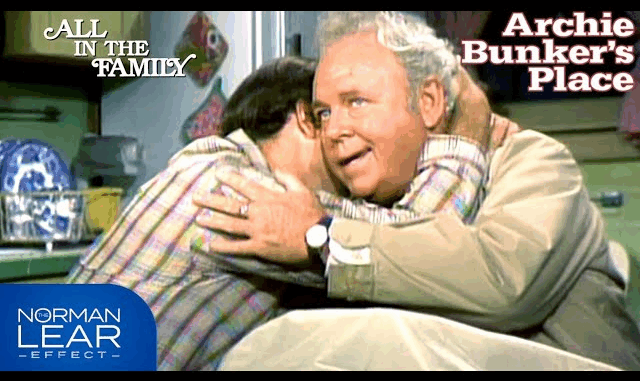
Few television creators have left as deep and lasting an imprint on American culture as Norman Lear. His groundbreaking sitcom, All in the Family, was not just a hit TV show—it was a cultural revolution. Through sharp writing, controversial themes, and unforgettable characters, Lear used comedy to start difficult conversations and reshape the television landscape forever.
The Genius Behind the Vision
Norman Lear was already a respected writer and producer when he developed All in the Family, but the series catapulted him into cultural legend. Adapted from the British sitcom Till Death Us Do Part, Lear took the basic premise and injected it with distinctly American tensions—class divisions, race relations, gender politics, and the Vietnam War.
With All in the Family, Lear proved that television could be more than escapist entertainment—it could be a platform for social change.
Archie Bunker: A Cultural Flashpoint
The show’s central figure, Archie Bunker, was unlike any sitcom character before him. Played to perfection by Carroll O’Connor, Archie was a working-class bigot who expressed outdated, often offensive views. But under Lear’s careful guidance, Archie was never simply a villain—he was a product of his environment, and his flaws made him a deeply human character.
Lear used Archie to expose societal prejudices—not to endorse them, but to hold them up for examination. This complex portrayal sparked debates in homes, classrooms, and newsrooms nationwide.
Storytelling That Sparked National Dialogue
Week after week, All in the Family dared to go where no sitcom had gone before. Abortion, homosexuality, racial slurs, anti-Semitism, economic inequality—these were not occasional topics, but the core of the show’s narrative. And remarkably, audiences kept tuning in.
Rather than turning viewers away, the raw honesty brought them closer. It made All in the Family feel real—like a reflection of everyday American life, with all its imperfections and contradictions.
A Lasting Legacy
The show’s impact didn’t end with its final episode in 1979. It launched several successful spin-offs (Maude, The Jeffersons, Good Times) that continued Lear’s tradition of mixing comedy with conscience. More importantly, it laid the foundation for socially aware storytelling in mainstream entertainment.
Writers, directors, and producers today still point to Lear’s work as inspiration. His willingness to challenge the status quo made All in the Family a blueprint for television that matters.
Conclusion
Norman Lear’s All in the Family did more than entertain—it educated, provoked, and transformed American society. At a time when the nation was grappling with immense cultural shifts, Lear gave us a show that didn’t just reflect the world as it was—but dared to imagine what it could become. For that reason, All in the Family remains not only a classic, but a landmark in television history.
